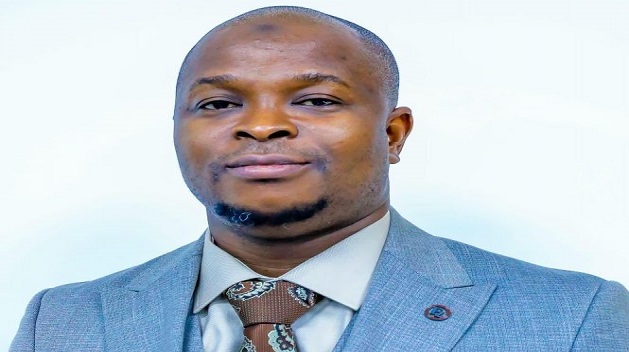Telecom
Intelligent Connected Machines to be a Major Part of Life by 2030 – Ericsson

Consumers expect connected technology to become more flexible and interactive going forward and see devices enabling more pro-active, and even creative choices in a wide range of everyday life situations by 2030.

The tenth edition of the Ericsson ConsumerLab 10 Hot Consumer Trends report highlights consumer predictions about the various roles that connected intelligent machines could take on going forward. Each of these roles could be seen as new service areas, opening a range of opportunities for 5G service providers to gradually extend intelligent networks to their customers.
At Ericsson Research, our vision is that advances in AI and cellular communications technology will enable connected intelligent machines to securely communicate across the networks of tomorrow. In the process, they could make the world more responsive to consumer needs than ever before, given that consumers predict intelligent connectivity to enable services that go way beyond the mobile broadband experiences of today.
Based on long-standing global trend research, the ConsumerLab 10 Hot Consumer Trends 2030 report represents the expectations and predictions of 50 million early technology adopters across 15 major cities.
In this study, respondents rated 112 connected intelligent machine concepts, ranging from a human-centered to a more rational perspective. The result is an overview of the 10 roles consumers expect connected intelligent machines to take in everyday life by 2030. Each trend in the report depicts a specific role that such machines could take.
Dr. Michael Björn, Head of Research Agenda, Ericsson Consumer & IndustryLab, and author of the report, says: “I was surprised to see that consumer expectations on smarter connectivity are higher than for any other connected intelligent machine type. The Connectivity Gofers trend includes predictions that devices will intelligently adapt to any signal, with use of cellular, Wi-Fi and fixed connectivity being seamless, as well as smart signal locators that guide users to spots with optimal coverage even in crowded areas.”
“This points to opportunities for 5G service providers to gradually extend intelligent networks to cover a whole range of new services for their customers, and each of the machine roles we present in this report could be seen as a whole new service area.”
“The Community Bots trend, for example, highlights the role machine intelligence could take in providing much needed community services. The Explainers puts forward the idea that all connected devices need to be able to explain themselves to users, and Sustainability bots focuses on the increased need for localized intelligent climate advice going forward.”
“What all of these potential services have in common is that they rely on intelligently communicating across devices and thus puts the networking aspect even more in the front seat than today.”
The 10 Hot Consumer Trends for 2030
- Body bots: Get a power-up – 76 percent of consumers predict there will be intelligent posture-supporting suits.
- Guardian angels: Three-quarters believe that privacy guardians will help fool surveillance cameras and block electronic snooping.
- Community bots: Seventy-eight percent believe electronic watchdog services will alert neighborhood allies to any trespassers.
- Sustainability bots: Future weather will be extreme – 82 percent believe devices will share data and warn about local rain torrents or heat blasts.
- Home officers: WFH uninterrupted – 79 percent say smart speakers will project noise-canceling walls around the home office space.
- Explainers: Over 8 in 10 predict automated financial management systems that explain how your investments are handled.
- Connectivity gofers: Smart signal locators will be able to guide you to optimal connectivity spots, say 83 percent of consumers.
- Baddie bots: A baddie bot that can be trained to carry out burglaries or attack other people is wanted by 37 percent of AR/VR users.
- Media creators: Machines will curate content. Sixty-two percent think game consoles will make original games based on their game play.
- Bossy bots: Around 7 in 10 believe that social network AIs will understand your personality and build up a circle of friends that is good for your mental and physical wellbeing.
Telecom
Study Shows Blocks in Telegram are Pushing the Underground Out

Modern messengers, such as WhatsApp, Telegram, Signal and others, are often used for illicit purposes. Kaspersky Digital Footprint Intelligence has conducted an in-depth monitoring of over 800 blocked cybercriminal Telegram channels between 2021 and 2024.

While a range of illegal activities continues to be hosted on the platform, its environment has become noticeably more challenging for sustained underground operations.
Telegram’s bot framework and other built-in features make for a low-effort ecosystem for the underworld.
A single bot can simultaneously manage queries, process cryptocurrency payments, and instantly deliver stolen bank cards, info-stealer logs, phishing kits, or DDoS attacks to hundreds of buyers per day, often without operator involvement.
Unlimited, non-expiring file storage eliminates the need for external hosting when distributing multi-gigabyte database dumps or stolen corporate documents. This frictionless automation naturally favours high-volume, low-price, low-skill offerings, such as leaked bank cards or other data, hosting malware, etc.
High-value, trust-dependent deals (for instance, zero-day vulnerability information) still remain on reputation-gated dark-web forums.
Kaspersky researchers found two clear trends related to illegal activities on Telegram. The average lifespan of shadow channels has increased, with the proportion of channels surviving over nine months more than tripling in 2023-2024 compared to 2021–2022. At the same time, Telegram’s blocking activity has risen significantly.
Monthly takedown figures recorded since October 2024 – even at their lowest – are comparable to the peak levels seen throughout 2023, and the overall pace continued to accelerate in 2025. This impedes malicious activities.
Other disadvantages of Telegram for cybercriminals include the lack of default end-to-end (E2E) encryption for chats, the inability to use their own servers for communication (due to the messenger’s centralised infrastructure), and closed server-side code, which makes it impossible to verify its functionality.
As a result, several established underground communities, including the nearly 9,000-member BFRepo group and the Angel Drainer malware-as-a-service operation, have already begun shifting primary activity to other platforms or proprietary messengers, citing repeated disruptions of their activities on Telegram.
“Fraudsters find Telegram a convenient tool for many malicious activities, but the risk-reward balance is clearly shifting. Channels are managing to stay online longer than a couple of years ago, yet the dramatically higher volume of blocks means operators can no longer count on long-term stability.
“When a storefront or service disappears overnight – and sometimes reappears only to be removed again weeks later – building a reliable business becomes much harder. We’re starting to see the early stages of migration as a direct consequence,” comments Vladislav Belousov, Digital Footprint Analyst at Kaspersky.
Telecom
Galaxy Backbone Marks Two Decades of Powering Nigeria’s Digital Evolution

Galaxy Backbone Limited (GBB), the Federal Government’s leading ICT infrastructure and shared services provider, will mark its 20th anniversary in June 2026 with a grand celebration that reflects two decades of innovation, resilience, and national impact.

Since its inception in 2006, Galaxy Backbone has been at the heart of Nigeria’s digital transformation journey; building the technological foundation that supports modern government operations and public service delivery. What began as a bold vision to connect government has grown into a critical national platform that drives efficiency, transparency, collaboration and innovation across the public sector.
Over the last 20 years, GBB has helped redefine how government works. By providing secure connectivity, enterprise-grade data centre services, cloud platforms, and digital collaboration tools, Galaxy Backbone has enabled Ministries, Departments and Agencies (MDAs) to move from fragmented, paper-based processes to more integrated, technology-driven systems.
This transformation has improved government-to-government coordination, strengthened engagement with businesses, and enhanced the delivery of services to citizens. Today, the digital infrastructure powered by Galaxy Backbone supports thousands of government users, hundreds of institutions, and critical national platforms that Nigerians rely on daily.
A key part of this journey has been the Federal Government of Nigeria’s investment, managed by GBB in robust national infrastructure, high-capacity and world class data centres, fibre-optic connectivity across multiple states, secure hosting services, and shared platforms that have helped government operate more efficiently and responsively. These contributions have played a pivotal role in Nigeria’s progress toward a more digital, agile and citizen-centered public service.
Galaxy Backbone’s impact has earned both national and global recognition. In 2025, the organisation was ranked first overall in the Federal Government Website Performance Scorecard, reflecting its commitment to excellence in digital service delivery. Internationally, GBB, a couple of years ago, received the prestigious United Nations Public Service Award, a testament to its leadership in promoting a whole-of-government approach to digital transformation.
As GBB celebrates two decades of service, this milestone is more than an organisational anniversary; it is a celebration of Nigeria’s digital evolution. It is an opportunity to appreciate how collaboration between government, industry partners, technology providers, and dedicated public servants has helped build a stronger, more connected nation.
The June 2026 anniversary celebration will bring together stakeholders from across the public and private sectors to reflect on the journey so far, acknowledge the partnerships that have shaped this success, and chart an ambitious course for the future. It will highlight how collective effort, shared vision, and innovation have positioned Galaxy Backbone as a strategic national asset.
Looking ahead, Galaxy Backbone remains committed to deepening digital transformation across the country; expanding infrastructure, strengthening cybersecurity, enhancing service delivery, and supporting the Federal Government’s drive for a smarter, more efficient and digitally empowered Nigeria.
At 20 years, Galaxy Backbone stands proud of its past, confident in its present, and inspired by the limitless possibilities ahead.
Telecom
Galaxy Backbone Marks 20 Years, Tops FG Website Scorecard

Galaxy Backbone Limited (GBB), Nigeria’s leading federal ICT infrastructure provider, has announced its 20th-anniversary celebration for June 2026, marking two decades since unifying government’s fragmented digital landscape into a secure national platform.

Galaxy Backbone
The announcement by Head of Media and Corporate Communications Chidi Okpala follows GBB’s top ranking in the 2025 Federal Government Website Performance Scorecard by the Bureau of Public Service Reforms, cementing its leadership in digital service delivery and transparency.
Managing Director Professor Ibrahim Adepoju Adeyanju described the milestone as celebrating Nigeria’s shift from paper-based silos to a cloud-first, integrated government. Achievements include the UN Public Service Award for 1-GOV.net, high-speed fiber deployment for G2G and G2B interactions, IPPIS payroll rollout, and pandemic-era digital support.
The June event will gather public-private stakeholders, global tech partners, and policymakers to unveil GBB’s next-decade roadmap emphasising cybersecurity, AI in public service, and rural connectivity.
GBB positions itself at the forefront of Nigeria’s 2030 digital nation drive, with 20 years of innovation signaling a smarter, connected future.

 E-Financial2 days ago
E-Financial2 days agoPaystack Expands Beyond Payments into Banking

 E-Financial2 days ago
E-Financial2 days agoSEC Partners Police in Nationwide Crackdown on Ponzi Schemes, Crypto Frauds

 E-Business2 days ago
E-Business2 days agoNigeria Targeted with 4,622 Cyber-attacks Per Week in December 2025

 General News2 days ago
General News2 days agoEFCC to Use Space Technology to Boost Asset Tracking, Investigations

 E-Financial2 days ago
E-Financial2 days agoFG Halts Tax Guidelines Amid Uncertainty Over Final Laws – Oyedele

 E-Financial2 days ago
E-Financial2 days agoPaystack Buys Microfinance Bank, Enters Nigeria Banking Arena

 News2 days ago
News2 days agoFG Directs Banks, Fintechs to Remit VAT on Service Fees

 General News2 days ago
General News2 days agoHow to Stay Safe Online During Sales Periods



























